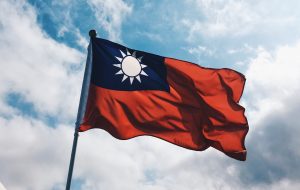Response to retail liberalization mainly expansions, not new entrants

FOREIGN retailers have responded to the amended Retail Trade Liberalization Act by expanding their current operations in the Philippines, with no new investors entering the market, the Philippine Retailers Association (PRA) said.
The PRA was citing remarks made on Monday by its chairman, Paul A. Santos, to Retail Asia, an industry monitor.
“The current floor amount for investing in the retail market will (not attract) the big foreign retailers that the law presumably wanted to invite into the country,” Mr. Santos said.
Mr. Santos said the PRA has instead witnessed the expansion of foreign retailers already on the ground, rather than new entrants.
“What we’re seeing would be existing foreign retailers already doing business in the Philippines expanding their presence. (Many of these had) been planned long before, but postponed,” he added.
Mr. Santos said the lowered minimum investment levels required of foreign retailers seeking to enter the Philippine market was better targeted at small- and mid-sized potential investors.
“It would make the Philippines now attractive to small- and medium-scale foreign retailers who may want to do business in the Philippines competing with Philippine small- and medium-scale enterprises,” Mr. Santos said.
Republic Act (RA) No. 11595, signed by former President Rodrigo R. Duterte in December 2021, amended RA 8762 or the Retail Trade Liberalization Act.
The amendments reduced the minimum paid-up capital for foreign retailers to $446,000 or P25 million from $2.5 million previously.
The amendments also require foreign retailers to invest a minimum of P10 million per store if they seek to open more than one physical location.
According to Mr. Santos, foreign retailers are more concerned about incentives and the economic environment rather than capitalization requirements.
In May, Mr. Santos said the PRA has yet to receive reports of new retailers entering the Philippines that were “specifically attracted” by the amended law.
“Attracting businesses to the Philippines takes more than (just) lowering your barriers to entry. What motivates foreign businesses to do business in the Philippines is the potential to earn a profit in this market,” Mr. Santos said.
“The reason why the Philippines is not an attractive retail destination for foreign businesses as compared to elsewhere in ASEAN is that our gross domestic product (GDP) per capita is still low compared to Indonesia, Vietnam, Malaysia, Thailand or Singapore,” he added.
In 2022, GDP grew 7.6%, accelerating from 5.7% in 2021. In the first quarter, GDP growth slowed to 6.4% from 8% a year earlier. — Revin Mikhael D. Ochave



